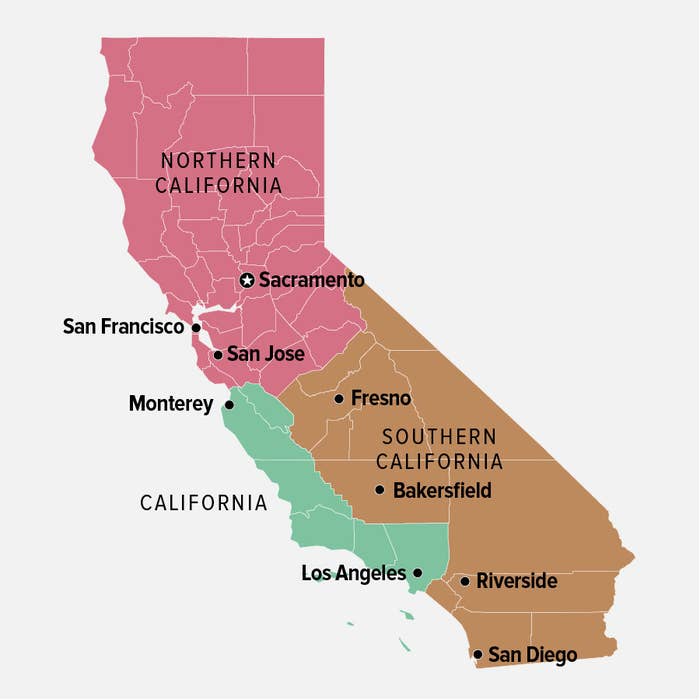
Californians will not be asked in November whether to divide the Golden State into three new states after a court on Wednesday blocked the controversial proposal from the ballot.
The California Supreme Court ordered the secretary of state not to place Proposition 9, also known as Cal 3, on the Nov. 6 ballot in response to a legal challenge filed against the measure last week.
"Because significant questions have been raised regarding the proposition’s validity, and because we conclude that the potential harm in permitting the measure to remain on the ballot outweighs the potential harm in delaying the proposition to a future election, respondent Alex Padilla, as Secretary of State of the State of California, is directed to refrain from placing Proposition 9 on the November 6, 2018, ballot," the court said.
Put forward by Silicon Valley venture capitalist Tim Draper, the initiative would have broken California into three new states — Northern California, California, and Southern California — each of which would then adopt their own constitution.
Last week, the Planning and Conservation League, a Sacramento-based environmental group, filed a petition to block the initiative from the ballot, arguing it is invalid because it does not comply with the state constitution.
In a statement emailed to BuzzFeed News, Draper, who was also behind an unsuccessful effort to split the state into six, said the court's decision showed that California's democracy is not working the way it's supposed to.
"It is a sad state that they have to resort to having 6 lawyers (who would probably have lost their jobs with Cal3) silence the 600,000 voters who signed the petition. And that tens of millions of voters won’t have a chance to make this decision," he said in the statement.
"The whole point of the initiative process was to be set up as a protection from a government that was no longer representing its people," Draper continued. "Now that protection has been corrupted."
Carlyle Hall, an attorney representing the Planning and Conservation League, said he was surprised the court acted "as quickly as it did," adding that the group was pleased with the decision.
"This is exactly the way the court should have ruled," Hall told BuzzFeed News. "It was entirely appropriate to take it off the ballot to avoid confusion of the voters on deciding whether to approve or disapprove something that was an abuse of the initiative process to begin with."
It's possible that the proposal could still appear on a future ballot, pending a final decision from the court on the merits of the initiative, according to a court spokesperson.
On Wednesday, the court also ordered Draper and California Secretary of State Alex Padilla to show cause for why the petition filed by the environmental group should not be granted.
It's rare for the court to yank initiatives from the ballot before an election. Hall said it's probably happened about half a dozen times in the last 30 to 40 years.
In 2014, the court blocked an advisory measure that asked California voters if Congress should overturn the US Supreme Court’s controversial Citizens United ruling in 2010 from the ballot. The court later greenlighted the proposition for the 2016 election and it was passed by voters.
Draper has said he believes California has become "ungovernable" and blamed lawmakers in Sacramento for its poor rankings in quality of life, K–12 education, and cost of living, but he has not offered much insight into how his proposal would work.
If the proposition had been allowed to stay on the ballot — and then was approved by voters, Congress, and the president — California’s existing assets and debts would have been divided among the three new states. The new state governments would then have had to figure out how to divvy up prison populations and water resources, and adopt new constitutions.
Experts told BuzzFeed News the proposal could have had far-reaching consequences, including costly and years-long legal battles over water rights and a poor Southern California state.
Because the new states would have been starting from scratch, current laws regarding abortion, greenhouse gas emissions, parental leave, consumer rights, and Proposition 13 — the landmark 1978 state ballot measure that limited homeowners' property tax rates — would also have been erased.
